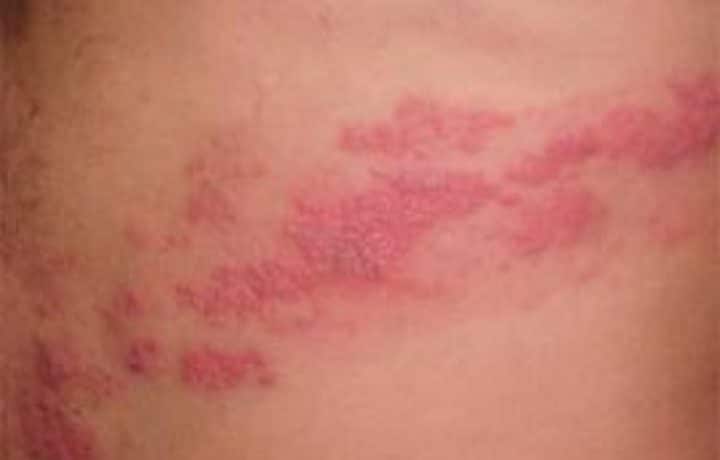Substances that can cause hives in vulnerable people include milk, eggs, nuts, shellfish, berries, food additives and medicines such as penicillin and aspirin. Insect bites, sunlight, extreme heat or cold, pressure on the skin, and sometimes infections can also cause it to occur. Stress can make it even worse.

Preventing Hives
Finding the cause of your hive outbreak is the most important thing you can do. If you are reacting to a food, you will feel the onset of it within two hours after you start eating. To help identify the food culprit:
- For a few days, eat foods that you think will not make you break out; some doctors recommend lamb and boiled rice.
- Gradually add other foods back into your diet, carefully watching for a reaction.
- In a notebook, keep a list of what you eat, as well as your activities and the products you use, to discuss with your doctor.
Once you have identified the food or foods that cause you to break out in hives, just avoid eating them, even if they are your favorites.
Hives: When to Call the Doctor
About 1 out of 5 people get hives at some time in their lives. While they are generally harmless, can accompany more serious, and sometimes fatal, conditions.
Call 911 or go to an emergency facility if:
- You have hives accompanied by hoarseness, wheezing, cold sweats, nausea, dizziness or difficulty breathing after a bee sting, insect bite, eating or taking a medication. You may be experiencing the beginnings of anaphylactic shock.
- Burning sensations or itchy weals develop in your throat.
Call your doctor for advice if you:
- Develop it after taking medication; you may be experiencing an allergic reaction to a medication or combination of medications.
- Have recurring incidences of hives over a period of a month or more.
